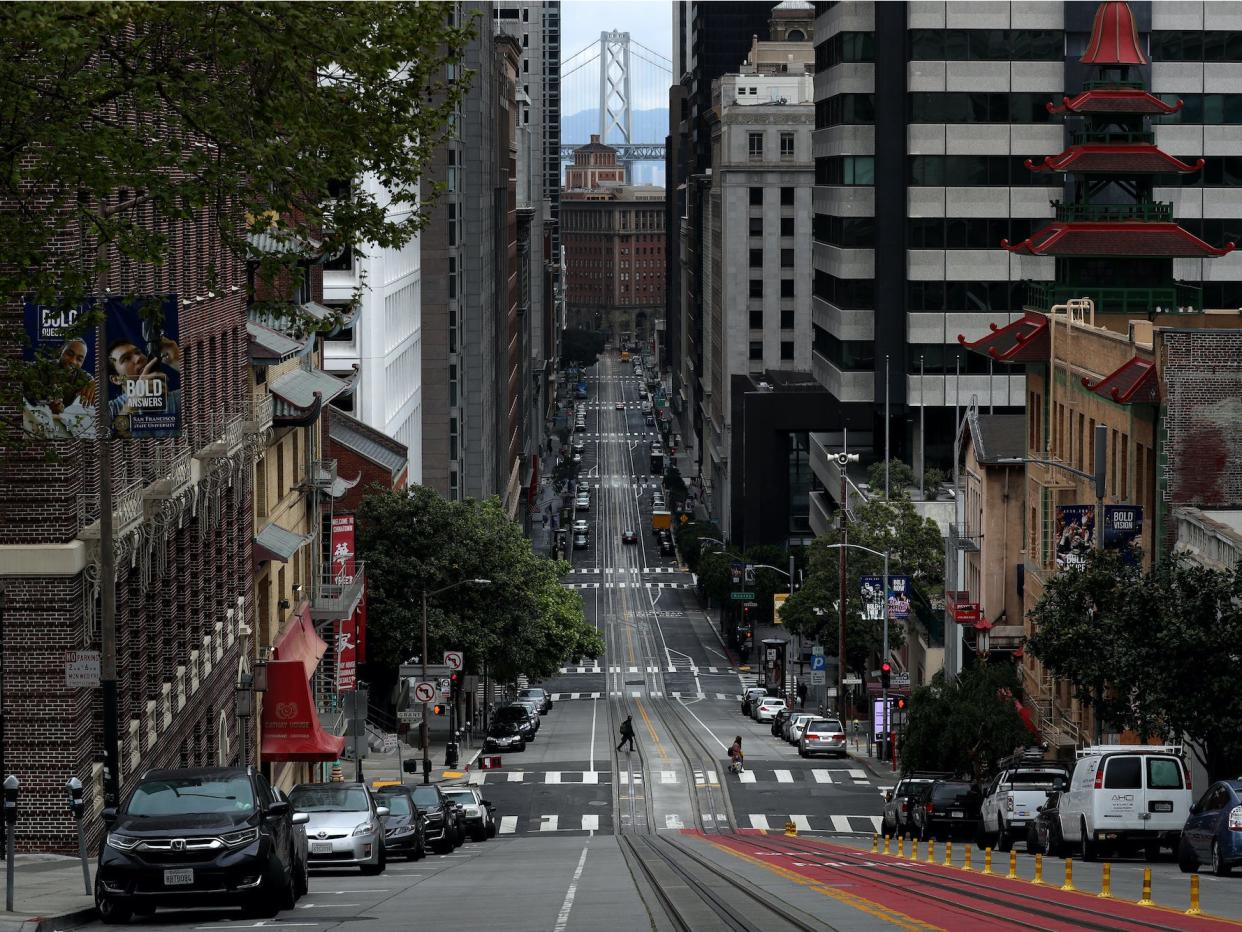San Francisco may spend $105 million to house its homeless population in 7,000 hotel rooms for 90 days in an effort to limit spread of the coronavirus

Justin Sullivan/Getty Images
An emergency measure in San Francisco is proposing renting 7,000 hotel rooms to house the city's entire homeless population.
The estimated cost of renting the units for 90 days is $105 million.
If the ordinance passes and the city can identify the funds to pay for the rooms, then the estimated 8,000 homeless residents will have space to shelter in place alongside much of the rest of the city.
Housing the homeless community would also help prevent a coronavirus outbreak among its members.
An outbreak in the homeless community could overwhelm the healthcare system and hinder the city's long-time goal of "flattening the curve" amid the pandemic.
San Francisco's latest plan to house its homeless population in an attempt to mitigate the impact of the coronavirus outbreak includes possibly renting 7,000 unoccupied hotel rooms.
The city will vote on the proposal next week, and if it passes, then the city would have until April 26 to procure the hotel rooms. At a Board of Supervisor's budget meeting Wednesday, City Controller Ben Rosenfield said the estimated cost to rent the estimated 7,000 units for 90 days is $105 million.
The city already has 1,977 hotel rooms under contract that will cost an estimated $35 million for 90 days of use, according to Human Services Agency Director Trent Rhorer, as the San Francisco Business Times reports.
The estimated costs include the cost of security, cleaning services, and other resources for the homeless.
Rosenfield said that more than half of the estimated $105 million will likely be covered by the Federal Emergency Management Agency, but the rest of the $50 million is "part of the puzzle we're trying to get put together," as Curbed SF reports. Rhorer said that the city may also be able to use some of the $150 million in emergency funds allocated to counties throughout the state of California.
The rooms included in the emergency measure would also house first-responders and healthcare workers who require self-isolation.
For weeks, San Francisco has been pushing forward with a mission to identify temporary housing and treatment sites that would prioritize isolation housing for those on the frontlines of the coronavirus pandemic, as well as the estimated 8,000 who are unhoused.
The city's travel and tourism industries have been slammed amid the coronavirus pandemic, so the thousands of empty hotel rooms have become a viable solution.
As the plan stands now, the homeless people in San Francisco who would be moved to the hotel rooms are those who have tested positive for COVID-19 or who have been tested and are waiting for results to return. The most vulnerable within the homeless community, people over the age of 60 with underlying health issues, also qualify to be housed in a hotel room designated for this purpose.
The city has toyed with turning its Moscone Center and the Palace of Fine Arts into mega-shelters housing up to 400 and 162 people, respectively. But those plans were scaled back after a backlash was stirred over the camp-like living conditions slated for the facilities. And their purpose was originally to free up room in existing homeless shelters by redistributing people to the makeshift shelters, not to house those coming off of the streets.
But some officials and homeless advocates argue that the thousands of empty hotel rooms in the city should be used to house the entire homeless population in the city as a preventative measure, regardless of the need for self-isolation.
If this emergency ordinance passes, and the city finds the needed cash for the hotel room rentals, San Francisco's entire homeless population would have space to shelter-in-place and an outbreak among the city's most vulnerable residents could be avoided.
There are already at least three confirmed cases among homeless residents staying at shelters in the city.
Read the original article on Business Insider

